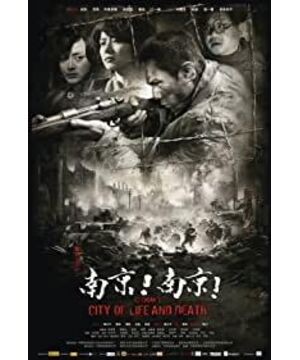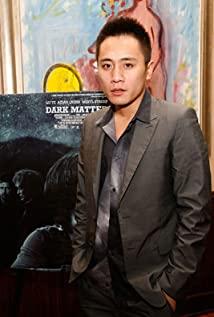1937, December, the capital of China, Nanjing.
Before that, China and Japan had just ended their bitter battle in Shanghai.
After the Meiji Restoration, Japan continuously defeated China and Russia. The Imperial Japanese Army of Japan, with this impressive and unbeaten record, has just experienced a hard three-month battle in Songhu, and the number of casualties has exceeded the Russo-Japanese War by nearly 80,000.
The National Revolutionary Army of 750,000 who participated in the war in Shanghai has lost more than 300,000 people
. However, this is a rare concerted effort in hundreds of years. The warlords fought each other, and the disputes of interests were put aside for the time being.
The armies of warlords and lords from all over the country gathered in Shanghai Qin Wang, guarding the center regardless of their lives.
In the melting pot of Shanghai, "our troops, one division after another, are put into the battlefield every day, and some are half dead in less than 3 hours, and some are two-thirds dead in 5 hours of support. This battlefield is like It's like a melting pot, it will melt when you fill it in!"
These Chinese soldiers used their flesh and blood to resist the superior equipment of the Japanese army. For three months, Japan realized that China is difficult to be destroyed, and the whole of Japan may have to go in.
When the National Revolutionary Army withdrew from the Songhu battlefield, Nanjing became the target of the Japanese army.
When the National Revolutionary Army, which had suffered heavy casualties, retreated to Nanjing, the establishment was completely disrupted, personnel and equipment were extremely scarce, and morale was lost.
Nanjing city defense was hastily organized, the Japanese army quickly formed a siege, and the fall of Nanjing was inevitable.
Due to the escape of Tang Shengzhi, commander of the Nanjing garrison, the troops were scattered and the city defense positions were lost.
In just thirteen days, an ancient capital of a country that had just experienced its golden decade and was determined to revive, a city defended by 150,000 troops, was captured by the Japanese army.
At this moment "Nanjing! Nanjing! "It started.
**Plot**
The National Revolutionary Army has disintegrated, but with no way to escape, there are still some soldiers who want to live and die with China's broken capital. They attacked a small group of Japanese troops, and had little success.
As the surviving Japanese army issued a warning, the Japanese army's alarm gradually sounded throughout the city; Nanjing had fallen and could no longer be held.
The scene of the Japanese army besieging this small group of Chinese soldiers fully demonstrates the gap between this ancient country and the emerging capitalist power.
Superior equipment and concise and effective tactics quickly wiped out the resistance of the Chinese soldiers.
In the face of shelling, Chinese soldiers hiding behind simple bunkers have no power to fight back. This is the situation that Chinese soldiers have always been in during the 8-year War of Resistance.
Will China perish? This was a huge rock that was pressing in the mouths of all Chinese people at that time.
When the captured National Revolutionary Army soldiers faced death and collectively shouted that China would not die, I think all the audience would be deeply moved.
In the church, the weakness of the state is exposed again. The state cannot protect its own citizens, and women can only save themselves. These women who come forward are admirable.
The most quintessential scene in the whole film is the sacrificial ceremony of the Japanese army. It fully expresses the conscientiousness of a confident and strong country. Faced with such a powerful country, it is not easy for a broken China to support it to the end.
**Movie**
This is an unpleasant film, the scenes are depressed, and the audience's emotions have not been released. During the whole process, they were silent.
But it's also a fairly pure film, showing the all-round gap between China and Japan, a powerful small country clean, tidy, confident, well-equipped and well-trained, completely overpowering the chaotic, panic and helpless backward big country.
This is also a direct-response movie, without much reflection, it throws you in and makes you feel shocked and uncomfortable, but it doesn't reflect on anything for you.
This is a very restrained movie, it doesn't allow itself to be sensational, and it moves you cheaply.
It's still a less well-controlled movie, a little jerky in a lot of places, but it's still a good movie with a strong style.
In contrast, Black hawk down and The thin red line
The thin red line are typical war films with excessive reflection. Everything is done so beautifully, with a sympathetic anti-war feeling at all times, but behind it shows weakness and idiots.
Black hawk down is the exact opposite. All the performances are direct reactions of the battlefield, with no time and space for reflection.
"Nanjing! "Nanjing" is very similar to Black hawk down, just keep calm.
The whole movie is like throwing you into Nanjing in 1937. At the moment of death, you are Lu Jianxiong who will not retreat, you are Mr. Tang who is lucky, you are a soldier in civilian clothes, and you are in the safety zone. women and children, so you were so frightened that you didn't even dare to lift your head up.
When the soldiers are standing guard, you don't dare to look up, and you may be killed by the Japanese with accurate marksmanship as soon as you look up;
you don't dare to look up during the massacre, and you will be found by the Japanese when you look up in the dead body
; When you walk up, you don’t dare to look up, for fear that the passing Japanese army will shoot you if you don’t like it.
When the Japanese army rushed into the safe area to rape and kill, you didn’t dare to look up, because there are still family members and children behind you;
When the child is thrown downstairs, when the little sister is snatched away, you still dare not look up, your pregnant wife is still behind you; the
movie does not reflect on you, nor does it repeat the massacre to you too much, Not even too provocative; but he made everyone realize that there was an unmistakable brutal massacre here, in the face of unresistable prisoners of war, women and children, and the Japanese army.
In the interview, Lu Chuan said that some people in Japan said that the massacre occurred because the Chinese soldiers resisted and changed into civilian clothes; our historians always do not mention our resistance in Nanjing, because this will allow the Japanese to find a reason for the massacre. . But we guard our capital, rightfully so, and even if we fight to the death after being captured, the slaughter remains brutal and unacceptable.
From the Japanese soldier Kadokawa, who found his conscience and committed suicide, we can see the conscience hidden in this animal army.
However, a lot of brutality and a small amount of conscience in the film clearly remind us:
please don't forget that behind every Japanese soldier discovered by conscience, there are at least a thousand butchers who slaughtered Chinese!
More importantly, Lu Chuan expressed a thorough and confident attitude.
We have already determined that there was a complete massacre in Nanjing in 1937. Even if there were a large number of soldiers in it, it would not be a reason for the massacre. The Japanese army massacred a large number of people. Prisoners of war and innocent civilians.
There is no need to argue with anyone, nor seek recognition from anyone.
As Chinese, we will fight to the death to defend our capital, and we will always remember:
In 1937, Japan massacred 300,000 Chinese in Nanjing, the capital of China!
View more about City of Life and Death reviews











